The Eighteenth of June or Poor Boney
anonyme
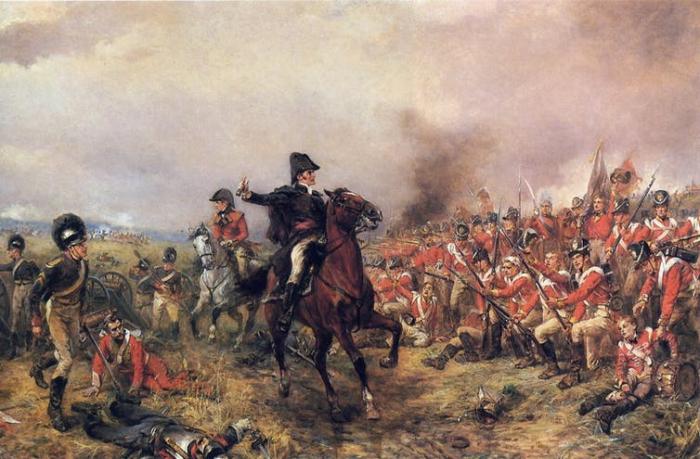
La canzone si riferisce alla sconfitta di Napoleone a Waterloo il 18 giugno 1815. E' stata interpretata da Norma Waterson con il titolo Poor Boney e da Martin Carthy con il titolo The Eighteenth of June
Testo cantato da Norma Waterson ripreso da Mainly Norfolk: English Folk and Other Good Music. Vedi anche FolkWorld #57: Songs That Made History
Testo cantato da Norma Waterson ripreso da Mainly Norfolk: English Folk and Other Good Music. Vedi anche FolkWorld #57: Songs That Made History
All you people who live at home easy
(continuer)
(continuer)
18/12/2020 - 18:20
Parcours:
Les guerres napoléoniennes
The Green Fields of England
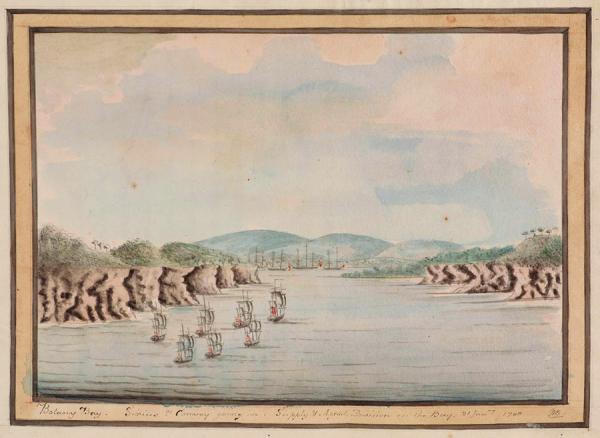
1977
The Transports
This unique project relates the true story of Henry Cabell and Susannah Holmes, convicts transported to Australia on the “First Fleet” in 1787 and the trials and tribulations which culminated in that historic voyage. The tale is presented as a cycle of new compositions in the idiom of traditional English folk song, linked by narrative passages in the style and to the melodies of broadsheet ballads of the time. The orchestral passages and arrangements for the accompanied songs have been conveived in such a way as to underline the overall feeling of “period” and the instruments used are those likely to have been heard in the church bands or “quires” of East Anglian villages in those days. The singers have been chosen from the front rank of the English folk song revival, and the melodies composed to suit their individual style. A detailed account of the historical background... (continuer)
The Transports
This unique project relates the true story of Henry Cabell and Susannah Holmes, convicts transported to Australia on the “First Fleet” in 1787 and the trials and tribulations which culminated in that historic voyage. The tale is presented as a cycle of new compositions in the idiom of traditional English folk song, linked by narrative passages in the style and to the melodies of broadsheet ballads of the time. The orchestral passages and arrangements for the accompanied songs have been conveived in such a way as to underline the overall feeling of “period” and the instruments used are those likely to have been heard in the church bands or “quires” of East Anglian villages in those days. The singers have been chosen from the front rank of the English folk song revival, and the melodies composed to suit their individual style. A detailed account of the historical background... (continuer)
Farewell to our lovers and our kind relations,
(continuer)
(continuer)
envoyé par Dq82 4/1/2018 - 15:16
The Humane Turnkey

1977
The Transports
This unique project relates the true story of Henry Cabell and Susannah Holmes, convicts transported to Australia on the “First Fleet” in 1787 and the trials and tribulations which culminated in that historic voyage. The tale is presented as a cycle of new compositions in the idiom of traditional English folk song, linked by narrative passages in the style and to the melodies of broadsheet ballads of the time. The orchestral passages and arrangements for the accompanied songs have been conveived in such a way as to underline the overall feeling of “period” and the instruments used are those likely to have been heard in the church bands or “quires” of East Anglian villages in those days. The singers have been chosen from the front rank of the English folk song revival, and the melodies composed to suit their individual style. A detailed account of the historical background... (continuer)
The Transports
This unique project relates the true story of Henry Cabell and Susannah Holmes, convicts transported to Australia on the “First Fleet” in 1787 and the trials and tribulations which culminated in that historic voyage. The tale is presented as a cycle of new compositions in the idiom of traditional English folk song, linked by narrative passages in the style and to the melodies of broadsheet ballads of the time. The orchestral passages and arrangements for the accompanied songs have been conveived in such a way as to underline the overall feeling of “period” and the instruments used are those likely to have been heard in the church bands or “quires” of East Anglian villages in those days. The singers have been chosen from the front rank of the English folk song revival, and the melodies composed to suit their individual style. A detailed account of the historical background... (continuer)
Part 1
(continuer)
(continuer)
envoyé par Dq82 4/1/2018 - 15:08
The Ballad of Henry and Susannah

1977
The Transports
This unique project relates the true story of Henry Cabell and Susannah Holmes, convicts transported to Australia on the “First Fleet” in 1787 and the trials and tribulations which culminated in that historic voyage. The tale is presented as a cycle of new compositions in the idiom of traditional English folk song, linked by narrative passages in the style and to the melodies of broadsheet ballads of the time. The orchestral passages and arrangements for the accompanied songs have been conveived in such a way as to underline the overall feeling of “period” and the instruments used are those likely to have been heard in the church bands or “quires” of East Anglian villages in those days. The singers have been chosen from the front rank of the English folk song revival, and the melodies composed to suit their individual style. A detailed account of the historical background... (continuer)
The Transports
This unique project relates the true story of Henry Cabell and Susannah Holmes, convicts transported to Australia on the “First Fleet” in 1787 and the trials and tribulations which culminated in that historic voyage. The tale is presented as a cycle of new compositions in the idiom of traditional English folk song, linked by narrative passages in the style and to the melodies of broadsheet ballads of the time. The orchestral passages and arrangements for the accompanied songs have been conveived in such a way as to underline the overall feeling of “period” and the instruments used are those likely to have been heard in the church bands or “quires” of East Anglian villages in those days. The singers have been chosen from the front rank of the English folk song revival, and the melodies composed to suit their individual style. A detailed account of the historical background... (continuer)
Part 1
(continuer)
(continuer)
envoyé par Dq82 4/1/2018 - 14:46
The Nightingale
anonyme
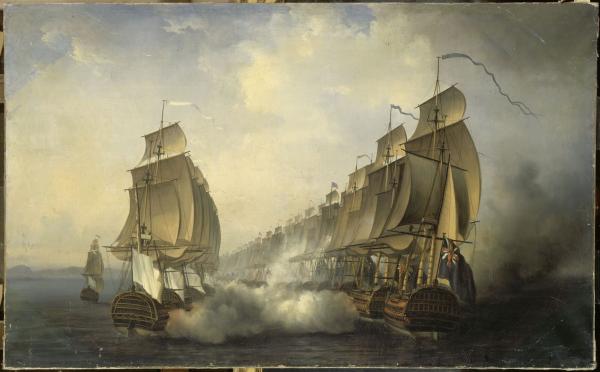
[XVIII° secolo]
Una shanty & love ballad settecentesca, classificata al n. 1093 delle Bodleian Libraries. Qui le date dei riscontri sono tutte ottocentesche ma The Nightingale è stato sicuramente il nome di una nave da guerra inglese impiegata contro i francesi negli ultimi due decenni del 700, durante la guerra d'indipendenza americana o le guerre rivoluzionarie.
Testo trovato su Mainly Norfolk: English Folk and Other Good Music, come interpretato da Eliza Carthy e Norma Waterson, rispettivamente figlia e moglie di Martin Carthy, nel loro album "Gift" del 2010.
In precedenza la canzone è stata incisa anche da Cyril Tawney, da The Clancy Brothers con Louis Killen, Frankie Armstrong e altri.
Una storia di amore impossibile, di sopruso e di guerra.
Un giovane contadino s'innamora, ricambiato, di una ragazza di famiglia benestante. I genitori di lei non solo osteggiano la relazione... (continuer)
Una shanty & love ballad settecentesca, classificata al n. 1093 delle Bodleian Libraries. Qui le date dei riscontri sono tutte ottocentesche ma The Nightingale è stato sicuramente il nome di una nave da guerra inglese impiegata contro i francesi negli ultimi due decenni del 700, durante la guerra d'indipendenza americana o le guerre rivoluzionarie.
Testo trovato su Mainly Norfolk: English Folk and Other Good Music, come interpretato da Eliza Carthy e Norma Waterson, rispettivamente figlia e moglie di Martin Carthy, nel loro album "Gift" del 2010.
In precedenza la canzone è stata incisa anche da Cyril Tawney, da The Clancy Brothers con Louis Killen, Frankie Armstrong e altri.
Una storia di amore impossibile, di sopruso e di guerra.
Un giovane contadino s'innamora, ricambiato, di una ragazza di famiglia benestante. I genitori di lei non solo osteggiano la relazione... (continuer)
Both young and old, I pray lend an ear
(continuer)
(continuer)
envoyé par Bernart Bartleby 1/1/2018 - 16:44
Hand-Loom Weaver’s Lament
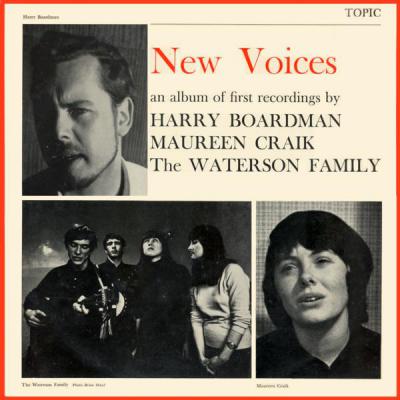
[1820s]
Testo scritto da John Grimshaw, tale dei dintorni di Manchester di cui non mi pare ci siano tracce precise nella Rete.
Sicchè l’ho attibuita ad Harry Boardman (1930–1987), folksinger del Lancashire, che nel 1964 la incise (con il titolo “The Hand-Loom Versus The Power-Loom) nel disco collettivo intitolato “New Voices”, con Maureen Craik e The Waterson Family
Sulla melodia della popolare “A-Hunting We Will Go”
Handloom weavers were generally poor but at least they had a measure of independence, whether they were itinerate or working at home in their own cottages. But with the coming of the Industrial Revolution and the machine-looms, their independence went and they had to crowd into factories under the eye of the overseer. This song relates to the period towards the end of the eighteenth century when the switchover from hand-weaving to power-weaving was taking place. It's printed... (continuer)
Testo scritto da John Grimshaw, tale dei dintorni di Manchester di cui non mi pare ci siano tracce precise nella Rete.
Sicchè l’ho attibuita ad Harry Boardman (1930–1987), folksinger del Lancashire, che nel 1964 la incise (con il titolo “The Hand-Loom Versus The Power-Loom) nel disco collettivo intitolato “New Voices”, con Maureen Craik e The Waterson Family
Sulla melodia della popolare “A-Hunting We Will Go”
Handloom weavers were generally poor but at least they had a measure of independence, whether they were itinerate or working at home in their own cottages. But with the coming of the Industrial Revolution and the machine-looms, their independence went and they had to crowd into factories under the eye of the overseer. This song relates to the period towards the end of the eighteenth century when the switchover from hand-weaving to power-weaving was taking place. It's printed... (continuer)
You gentlemen and tradesmen that ride about at will,
(continuer)
(continuer)
envoyé par Bernart Bartleby 17/2/2016 - 11:48
My Love Has Listed (or the White Cockade)
anonyme
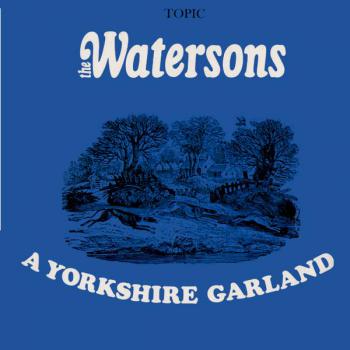
[Fine 700, inizio 800]
Ballata di autore anonimo risalente con tutta probabilità alle guerre napoleoniche, raccolta a Newcastle nel 1821 e pubblicata sulla Blackwood's Magazine di Edimburgo.
Testo trovato su Mainly Norfolk: English Folk and Other Good Music.
La prima incisione dovrebbe essere quella di Bob Davenport nel suo EP “Geordie Songs” del 1959.
La versione qui riportata è quella di Norma Waterson con i suoi familiari (The Watersons) presente nel disco intitolato “A Yorkshire Garland” del 1966.
Una canzone molto interessante, in cui ben due strofe sono dedicate alle colorite maledizioni lanciate da una giovane all’indirizzo dell’esercito e di coloro che hanno indotto il suo fidanzato ad arruolarsi per la guerra…
Ballata di autore anonimo risalente con tutta probabilità alle guerre napoleoniche, raccolta a Newcastle nel 1821 e pubblicata sulla Blackwood's Magazine di Edimburgo.
Testo trovato su Mainly Norfolk: English Folk and Other Good Music.
La prima incisione dovrebbe essere quella di Bob Davenport nel suo EP “Geordie Songs” del 1959.
La versione qui riportata è quella di Norma Waterson con i suoi familiari (The Watersons) presente nel disco intitolato “A Yorkshire Garland” del 1966.
Una canzone molto interessante, in cui ben due strofe sono dedicate alle colorite maledizioni lanciate da una giovane all’indirizzo dell’esercito e di coloro che hanno indotto il suo fidanzato ad arruolarsi per la guerra…
'Tis true, my love's enlisted and he wears a white cockade.
(continuer)
(continuer)
envoyé par Bernart Bartleby 30/4/2015 - 10:36
Home Fit for Heroes
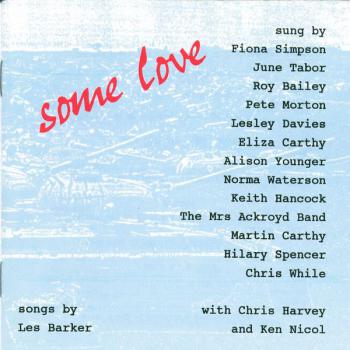
[1992]
Parole di Les Barker (1947-), poeta di Manchester.
Musica di Martin Carthy.
Interpretata da Norma Waterson nel disco di Les Barker intitolato “Some Love”, con June Tabor, Roy Bailey, Eliza e Martin Carthy, Chris Harvey, Ken Nicol e molti altri
Parole di Les Barker (1947-), poeta di Manchester.
Musica di Martin Carthy.
Interpretata da Norma Waterson nel disco di Les Barker intitolato “Some Love”, con June Tabor, Roy Bailey, Eliza e Martin Carthy, Chris Harvey, Ken Nicol e molti altri
They died in their millions,
(continuer)
(continuer)
envoyé par Bernart Bartleby 30/4/2015 - 08:49
Parcours:
Héros, La Grande Guerre (1914-1918)
Norwich Gaol

[1977]
Parole e musica di Peter Bellamy
In “The Transports. A Ballad Opera.”
Con la crema dei folksinger inglesi dell’epoca, tra cui The Watersons, Martin Carthy, Nic Jones, A.L. Lloyd, June Tabor, Martin Winsor, Cyril Tawney e Dave Swarbrick.
Testo trovato su Mainly Norfolk: English Folk and Other Good Music
Un’opera che racconta una storia vera, quella di Henry Cabell e Susannah Holmes, “two poor fellows” che nel 1783 furono condannati alla deportazione per aver commesso dei furti a causa della miseria. I due erano amanti e dalla loro relazione era nato un bimbo ma ai due non fu in un primo momento concesso di sposarsi e la famigliola corse il serio rischio di essere smembrata. Uno dei loro carcerieri s’impietosì e intercesse per loro presso il ministro dell’interno.
Così Henry e Susannah poterono unirsi in matrimonio e nel 1787, dando corso alla sentenza, furono imbarcati con il... (continuer)
Parole e musica di Peter Bellamy
In “The Transports. A Ballad Opera.”
Con la crema dei folksinger inglesi dell’epoca, tra cui The Watersons, Martin Carthy, Nic Jones, A.L. Lloyd, June Tabor, Martin Winsor, Cyril Tawney e Dave Swarbrick.
Testo trovato su Mainly Norfolk: English Folk and Other Good Music
Un’opera che racconta una storia vera, quella di Henry Cabell e Susannah Holmes, “two poor fellows” che nel 1783 furono condannati alla deportazione per aver commesso dei furti a causa della miseria. I due erano amanti e dalla loro relazione era nato un bimbo ma ai due non fu in un primo momento concesso di sposarsi e la famigliola corse il serio rischio di essere smembrata. Uno dei loro carcerieri s’impietosì e intercesse per loro presso il ministro dell’interno.
Così Henry e Susannah poterono unirsi in matrimonio e nel 1787, dando corso alla sentenza, furono imbarcati con il... (continuer)
The food is foul, the air is bad, the company not choice;
(continuer)
(continuer)
envoyé par Bernart Bartleby 29/4/2015 - 14:02
Us Poor Fellows

[1977]
Parole e musica di Peter Bellamy
In “The Transports. A Ballad Opera.”
Con la crema dei folksinger inglesi dell’epoca, tra cui The Watersons, Martin Carthy, Nic Jones, A. L. Lloyd, June Tabor, Martin Winsor, Cyril Tawney e Dave Swarbrick.
Un’opera che racconta una storia vera, quella di Henry Cabell e Susannah Holmes, “two poor fellows” che nel 1783 furono condannati alla deportazione per aver commesso dei furti a causa della miseria. I due erano amanti e dalla loro relazione era nato un bimbo ma ai due non fu in un primo momento concesso di sposarsi e la famigliola corse il serio rischio di essere smembrata. Uno dei loro carcerieri s’impietosì e intercesse per loro presso il ministro dell’interno.
Così Henry e Susannah poterono unirsi in matrimonio e nel 1787, dando corso alla sentenza, furono imbarcati con il figlioletto su uno degli 11 vascelli del convoglio battezzato “First... (continuer)
Parole e musica di Peter Bellamy
In “The Transports. A Ballad Opera.”
Con la crema dei folksinger inglesi dell’epoca, tra cui The Watersons, Martin Carthy, Nic Jones, A. L. Lloyd, June Tabor, Martin Winsor, Cyril Tawney e Dave Swarbrick.
Un’opera che racconta una storia vera, quella di Henry Cabell e Susannah Holmes, “two poor fellows” che nel 1783 furono condannati alla deportazione per aver commesso dei furti a causa della miseria. I due erano amanti e dalla loro relazione era nato un bimbo ma ai due non fu in un primo momento concesso di sposarsi e la famigliola corse il serio rischio di essere smembrata. Uno dei loro carcerieri s’impietosì e intercesse per loro presso il ministro dell’interno.
Così Henry e Susannah poterono unirsi in matrimonio e nel 1787, dando corso alla sentenza, furono imbarcati con il figlioletto su uno degli 11 vascelli del convoglio battezzato “First... (continuer)
The times they are hard and the wages are poor
(continuer)
(continuer)
envoyé par Bernart Bartleby 29/4/2015 - 13:42
The Bonny Light Horseman / Broken-Hearted I Wander
anonyme
Un lamento irlandese e inglese risalente ai tempi delle guerre napoleoniche.
Martin Howley cantò una versione chiamata "The Young Horseman" a Pat Mackenzie nella sua casa di Fanore, nella contea di Clare, nell'estate del 1975. Questa registrazione è stata inclusa nel 1998 nella fondamentale antologia A Story I'm Just About to Tell (The Voice of the People Series Volume 8).
Il gruppo folk di Manchester Canny Fettle ha inciso una versione intitolata Bonny Light Horseman nel 1975 nell'album Varry Canny.
Lal e Norma Waterson hanno cantato la canzone nell'album del 1977 A True Hearted Girl.
Sam Henry sostiene che la melodia, che ha probabilmente più di quattrocento anni, sia di origine irlandese perché utilizza una "gapped scale" (cioè una scala che non usa la quarta e la settima nota). Secondo William Barret la canzone era molto diffusa in Inghilterra dopo il 1790 diffusa su fogli volanti... (continuer)
Martin Howley cantò una versione chiamata "The Young Horseman" a Pat Mackenzie nella sua casa di Fanore, nella contea di Clare, nell'estate del 1975. Questa registrazione è stata inclusa nel 1998 nella fondamentale antologia A Story I'm Just About to Tell (The Voice of the People Series Volume 8).
Il gruppo folk di Manchester Canny Fettle ha inciso una versione intitolata Bonny Light Horseman nel 1975 nell'album Varry Canny.
Lal e Norma Waterson hanno cantato la canzone nell'album del 1977 A True Hearted Girl.
Sam Henry sostiene che la melodia, che ha probabilmente più di quattrocento anni, sia di origine irlandese perché utilizza una "gapped scale" (cioè una scala che non usa la quarta e la settima nota). Secondo William Barret la canzone era molto diffusa in Inghilterra dopo il 1790 diffusa su fogli volanti... (continuer)
Well now Bonaparte, he has commanded his troops for to stand
(continuer)
(continuer)
25/1/2014 - 18:39
×
![]()

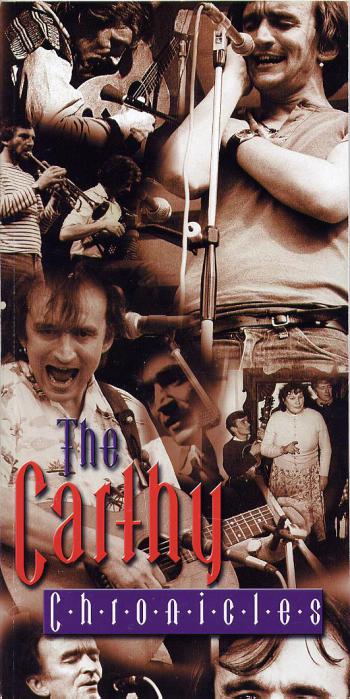
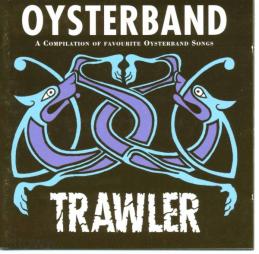
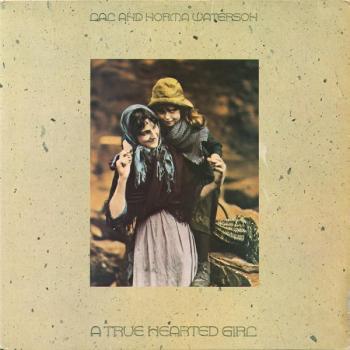
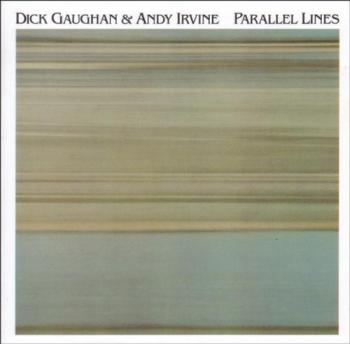
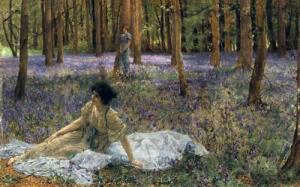
Parole di Kay Sutcliffe
Musica di Paul Abrahams
Interpretata da The Watersons, ossia Norma Waterson insieme ai suoi familiari (Lal, Mike e Rachel) e Martin Carthy, in un concerto del 1987.
In seguito inclusa in un’antologia di Carthy intitolata “The Carthy Chronicles” (2001)
I Watersons l’hanno poi a loro volta inclusa in un’antologia in 4 CD intitolata “Mighty River of Song” che hanno fatto uscire nell’aprile del 2013… E con prodigioso tempismo: proprio in occasione della dipartita dal mondo di Margaret Thatcher!
“Carbone (Lavoro) non (sussidio di) disoccupazione” fu scritta da Kay Sutcliffe, moglie di un minatore del Kent, all’epoca del grande sciopero dei minatori inglesi che li vide duramente contrapposti al governo dell’“Iron Lady” Margaret Thatcher.
“Coal Not Dole” era uno slogan che compariva scritto un po’ ovunque sui muri durante quel lungo e durissimo sciopero,... (continuer)